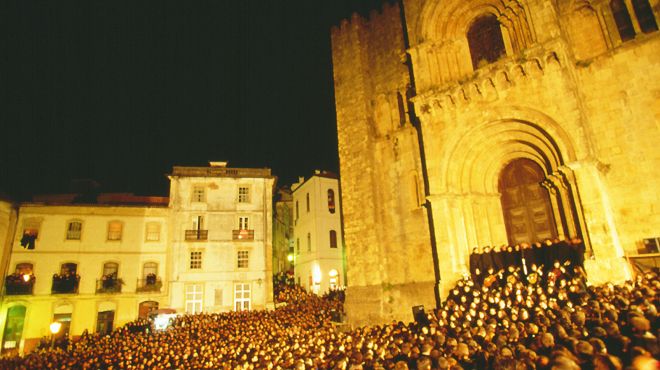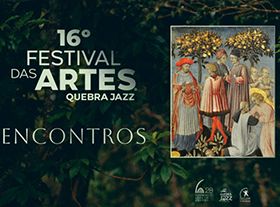Fado ou Canção de Coimbra (Fado or the song of Coimbra)

Fado ou Canção de Coimbra (Fado or the song of Coimbra)
Other
Some say that the Fado originated in the melodies imported by Brazilian students who, from 1860 onwards, came to Coimbra to study; others say that this form of song was brought here by students from Lisbon and that the university city made it sound different and gave it an individual flavour; yet others still connect its origin to the love songs and other tunes sung by the troubadours from Provence in the Middle Ages, which were brought to Portugal by the court of knights and minstrels who accompanied the weddings of princes and princesses.
Whatever its origin, however, even those who do not speak Portuguese cannot help being overcome by the deep feelings inspired by the music´s melody. I
t is normally associated with the male voice and its greatest exponents in the second half of the twentieth century were Adriano Correia de Oliveira, António Bernardino, Fernando Machado Soares, José Afonso and Luís Góis, amongst many others, who gave Portuguese music a new dimension of universality and fraternity.
Accompanied by the melancholic chords of the Portuguese guitar, this type music has also been blessed with two quite exceptional instrumentalists: Artur Paredes and his son Carlos Paredes.
The Fado de Coimbra is played and sung by various groups who have helped to make it better known in all the continents of the world, disseminating the dream-like and nostalgic temperament of the Portuguese soul, which the Fado transmits so wonderfully well through the melody and poetry of its words.
Whatever its origin, however, even those who do not speak Portuguese cannot help being overcome by the deep feelings inspired by the music´s melody. I
t is normally associated with the male voice and its greatest exponents in the second half of the twentieth century were Adriano Correia de Oliveira, António Bernardino, Fernando Machado Soares, José Afonso and Luís Góis, amongst many others, who gave Portuguese music a new dimension of universality and fraternity.
Accompanied by the melancholic chords of the Portuguese guitar, this type music has also been blessed with two quite exceptional instrumentalists: Artur Paredes and his son Carlos Paredes.
The Fado de Coimbra is played and sung by various groups who have helped to make it better known in all the continents of the world, disseminating the dream-like and nostalgic temperament of the Portuguese soul, which the Fado transmits so wonderfully well through the melody and poetry of its words.




 Explore
Explore 
 Remember and Share
Remember and Share 


